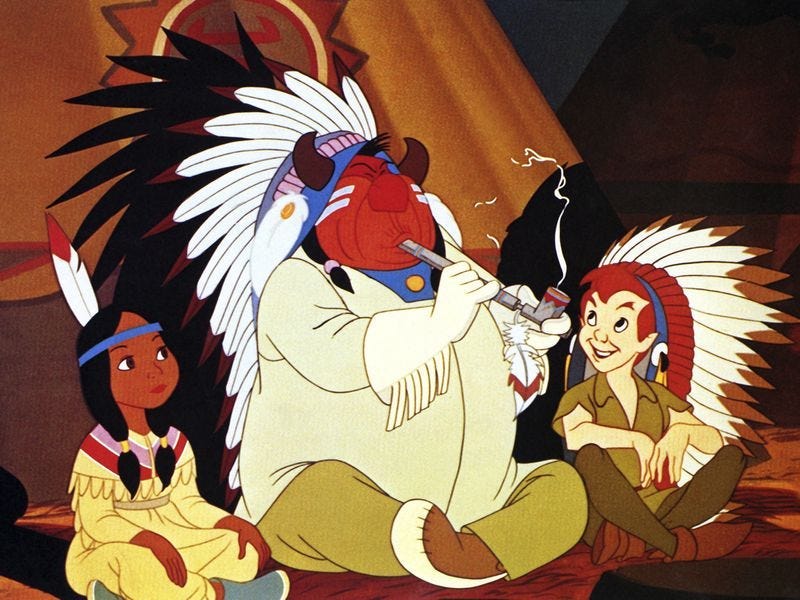
- Disney Plus now features stronger advisory messages about racist stereotypes on its older films, including “Peter Pan,” “Dumbo,” and “The Jungle Book.”
- “These stereotypes were wrong then and are wrong now,” reads Disney’s 12-second message, which viewers cannot skip.
- “Rather than remove this content, we want to acknowledge its harmful impact, learn from it and spark conversation to create a more inclusive future together,” it says.
- The new disclaimer went live on Friday. Disney’s older disclaimers were less strong, warning that programs “may contain outdated cultural depictions.”
- Visit Business Insider’s homepage for more stories.
“Peter Pan,” “Dumbo,” and “The Jungle Book” now feature stronger, unskippable warnings about racist stereotypes on Disney’s streaming service.
A message that flashes on screen before the start of some older films on Disney Plus tells viewers that the upcoming program “includes negative depictions and/or mistreatment of people or culture.”
“These stereotypes were wrong then and are wrong now,” it continues. “Rather than remove this content, we want to acknowledge its harmful impact, learn from it and spark conversation to create a more inclusive future together.”
The advisory message also appears before the start of “Aladdin,” “Lady and The Tramp,” “The Aristocats,” and “Swiss Family Robinson.”
The disclaimers went live on Disney Plus on Friday.
Disney first introduced similar disclaimers, albeit weaker ones, in November 2019, which read: "This program is presented as originally created. It may contain outdated cultural depictions."
The Siamese cat Shun Gon in "Aristocats" is a "racist caricature" of East Asian people, Disney said on its website on Friday, pointing to his "exaggerated stereotypical traits such as slanted eyes and buck teeth."
He is voiced by a white actor who sings with a heavy accent, and plays the piano with chopsticks.
"Dumbo" features references to racist minstrel shows, Disney said, and a character shares its name with the Jim Crow laws that enforced racial segregation in the US.
"Peter Pan" portrays Native people "in a stereotypical manner that reflects neither the diversity of Native peoples nor their authentic cultural traditions," Disney said, pointing to the film's repeated use of the term "redskins."
Peter and the Lost Boys also dance while wearing headdresses, which Disney calls "a form of mockery and appropriation of Native peoples' culture and imagery."
In "Swiss Family Robinson," some pirates have colored their faces, speak in an unintelligible language, and "are costumed in an exaggerated and inaccurate manner." This presents a "singular and racist representation of Asian and Middle Eastern peoples," Disney said.
Disney: Some communities "erased or forgotten altogether"
Disney is reviewing its library with a group of independent experts who advocate for better media portrayal of underrepresented groups, such as women, people of color, disabled people, and the LGBTQ+ community, it said.
"What message are we sending to little kids at the most vulnerable age, if characters are one-dimensional, stereotyped, sidelined, hyper-sexualized, or simply, not there at all?" asked gender equality advocate Geena Davis in an accompanying video by Disney.
Some communities "have been erased or forgotten altogether," Disney added, and expressed its commitment "to giving voice to their stories as well."
"We can't change the past," Disney continued, "but we can acknowledge it, learn from it and move forward together to create a tomorrow that today can only dream of."
The company hopes to "open dialogue on history that affects us all" and stated it is committed to "represent[ing] communities authentically."
